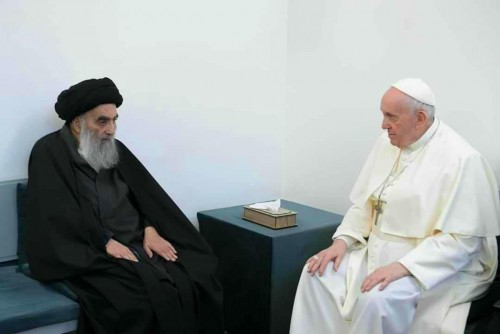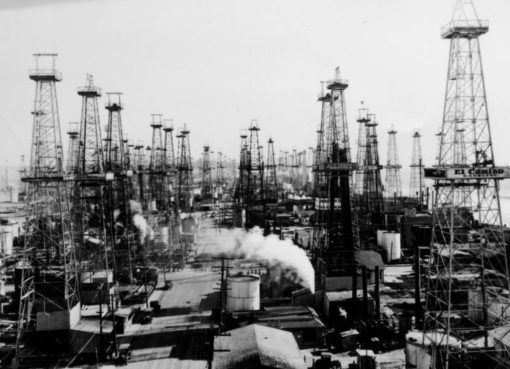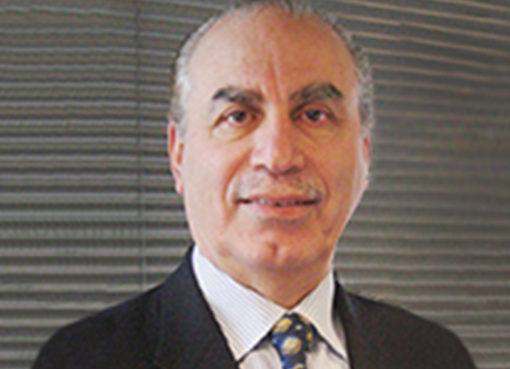|
The dollar exchange rate in the Iraqi market climbed further in the final days of January 2023. It exceeded 1650 Iraqi dinars per dollar, up about 190 dinars from the official exchange rate of 1460 dinars per dollar. Food and commodity prices increased, forcing the Iraqi government to scramble to restore the national currency’s exchange rate. The most recent of these measures was the removal of the Central Bank of Iraq (CBI) governor and the appointment of a new governor. The crisis was precipitated mainly by the US Federal Reserve’s decision to enforce stringent new controls over the sale and transfer of dollars to Iraqi banks and traders.
The Fed and Monetary Circumvention in Iraq
Since most of the money from Iraq’s oil exports ends up in a US bank account set up for the Iraqi ministry of finance, the US Federal Reserve has a lot of say over how much, how quickly, and based on what mechanism, dollars flow into Iraq. The ministry sells these dollars to the Central Bank of Iraq (CBI). This entity controls the country’s foreign exchange rates, oversees its foreign financial reserves, and then deposits them in its account with the US Federal Reserve. Due to this arrangement, the US Federal Reserve has greater discretion over the flow of American currency into Iraq.
The CBI sets the market exchange rate for the US dollar and ensures its stability through the currency sale window, a mechanism through which the CBI sells dollars to licensed banks, currency exchanges, and businesses to pay for imports. Because of this, businesses that purchase currency are required to provide invoices for the goods they import to be paid in dollars at the official exchange rate. However, since this system’s introduction, numerous dodgy enterprises have reaped their benefits. For instance, political parties, armed groups, and even foreign entities have set up banks or companies to profit directly from the CBI’s dollar auctions, bypassing the traditional banking system.
Additionally, these banks fraudulently forged import invoices to acquire US dollars at the government rate, subsequently transferring those funds to off-shore accounts. According to an Iraqi economist, dollar smuggling operations from Iraq extended beyond the Middle East to include nations like Russia, Cuba, and North Korea, besides its immediate neighbors, including Syria, Lebanon, Turkey, and Iran. Reuters’ report showed they obtained about US$ 100 million a month by exploiting the CBI’s sale system.
The central bank previously received some of its dollar deposits in the form of banknotes that were regularly shipped from the US to Iraq. However, recent reports indicate some of these were smuggled to Iran and Turkey, as the powerful neighbors were struggling with plummeting their national currencies. A member of the Iraqi parliament claimed that the country’s central bank sold about US$ 37 billion through the currency sale window in 2022. As recorded by the Iraqi Customs Authority, the value of imported goods is only about US$ 14 billion. This indicates a discrepancy of about US$ 23 billion between the volume of currency sold by the central bank and the amount used for imports.
With the rollout of some controls designed by the US Federal Reserve in collaboration with the CBI in November 2022, the Iraqi dinar’s exchange rate against the dollar took a downhill slope. In particular, the controls include a new electronic platform that requires Iraqi banks wishing to buy dollars from the central bank to disclose information about their financial transfers and end users. Moreover, it has become obligatory for merchants and business owners to provide documentation about the financial movement of the purchased dollars and the accounts in which they end up.
Al-Ansari, Al-Qabidh, BIME, and Asia, four of the biggest banks engaged in currency trading, were also shut out from the currency sale window because the Iraqi authorities established that they had engaged in money laundering activities. Three of these banks are associated with a businessman named Ali Ghulam, who enjoys close ties with top Iraqi politicians and government figures. He was detained in November while traveling from Lebanon to Baghdad. However, he was quickly released after a few hours without providing details about the charges brought against him or the justifications for his release. This incident indicates the enormous power he wields.
Political and Economic Implications
Discussions between the US Federal Reserve and the CBI to reform the currency sale window and end pervasive fraud and smuggling operations have been ongoing for some time. International pressure has also been on Iraq to modernize, automate, and reform its financial and banking system. However, the new controls have occurred in the context of three factors:
First: The new mechanism was implemented at the same time the United States government — specifically the Treasury Department — stepped up sanctions against Iran. It was in response to the breakdown in talks concerning that country’s nuclear program and the brutal crackdown on protesters in Iran. The sanctions also targeted members of the Quds Force and the Lebanese Hezbollah involved in fuel smuggling and tightened regulation of money flow into Iran.
Second: Iraqis have recently been preoccupied with a major financial scandal involving the looting of more than US$ 2.5 billion from the Iraqi Tax Authority, which they have dubbed “the theft of the century. ” The scandal made it clear that there is a vast network of shared interests benefit businesspeople, politicians, and public servants. This again brought to light the extent of Iraq’s pervasive corruption and the widespread smuggling and manipulation of state funds, which are shielded by collusion on the parts of the executive, legislative, and judicial authorities.
Third: A new government was formed in Iraq a few months ago, with the Coordination Framework, an alliance controlled by pro-Iran parties, as its primary leader. Armed factions and militias have significant influence within this government. As evidenced by the formation of the Al-Muhandis Company, which is affiliated with the Popular Mobilization Commission, these parties and factions can influence the government’s monetary and economic policies.
It would be overstating to say that any of these factors had a decisive impact on the decision to increase oversight of Iraq’s dollar sales. However, they all helped speed up or otherwise back up the case for the new controls. Due to these actions, the number of dollars available on the Iraqi market was significantly reduced, which raised the exchange rate. An Iraqi economist revealed that after introducing the new controls, particularly the aforementioned digital platform, around 90 percent of the dollar purchase orders were turned down. Earlier, the central bank was selling US$ 250 million daily; now, it is selling an average of US$ 55 million.
Despite the CBI’s emphasis on the technical nature of the problem, the decline of the Iraqi dinar’s value triggered a political and social backlash. The largest social group that drives market activity comprises government employees, wage earners, and recipients of state-sponsored social welfare. Hence, a decline in the dinar’s value means a decline in their purchasing power, which has led to an economic downturn in some sectors. Meanwhile, the currency speculation market and some banks and exchange companies attempted to use their dollar holdings to manipulate the currency’s supply and increase their profits, contributing to the rapid ascent of the dollar’s exchange rate. Protests were held on January 25 to demand a quick solution.
Some political parties and armed factions that the new controls have negatively impacted are increasing their pressure on the government and the CBI. They have been calling for Iraq to wean itself off the dollar and end its reliance on the US Federal Reserve to manage the country’s foreign exchange reserves, or at the very least for the United States to be pressured into relaxing the controls for a set time to allow banks to adjust before reinstating them. In addition, some Coordination Framework coalition members demanded the dismissal of the governor of the Central Bank and suggested that he was affiliated with the Sadrist movement, which is not part of the coalition and is interested in seeing Prime Minister Mohammed Shia’ al-Sudani’s government fail.
On the other hand, the ruling Coordination Framework is under increasing fire from Sadrist bloggers and affiliated journalists for failing to stop the dollar exchange rate from crossing the 1600 dinars threshold or to return it to the rate that was in place prior to the government of the former prime minister Mustafa Kadhimi increasing the exchange rate in 2020.
Under this pressure, Sudani’s government took some measures, some of which were seen as populist, such as the arrest of several currency dealers on charges of speculation. The Central Bank governor, Mustafa Ghaleb, resigned on January 23, 2023, and the government announced that Ali al-Allaq, the previous governor Mustafa Kadhimi fired, would serve as acting governor. It is common knowledge that Allaq is an associate of former prime minister Nuri al-Maliki and the Dawa Party and that he served as governor under Maliki’s administration.
The implication is that this change also takes place in the context of fierce competition for key government positions between the members of the Framework coalition, especially between Maliki and Qais Khazali, the leader of Asain Ahl Al-Haq. Maliki appears more receptive to American demands about the Iraqi currency sale window.
The Iraqi prime minister sent the head of the Trade Bank of Iraq into retirement and replaced him with Bilal Hamdani. The same day, he decided to open a new foreign currency window through the Trade Bank of Iraq to sell currency to small businesses, subject to CBI funding the bank with an amount of US$ 500 million to issue letters of credit to small businesses. This action appears to be intended to make it easier to sell dollars outside of the new mechanism established by the US Federal Reserve.
The new window might also be an effort to buy time and prevent the value of the exchange rate for the Iraqi dinar from falling further until a deal is reached between the CBI and the US Federal Reserve. However, the new window could develop into an alternative vehicle for currency manipulation and smuggling, putting the Trade Bank of Iraq in danger of US sanctions.
According to the Iraqi Foreign Minister, Prime Minister Mohammed al-Sudani will travel to the United States, with the issue of the dollar exchange rate and US Federal Reserves’ new regulations expected to be high on the agenda.
Scenarios
There are three possible outcomes for how the crisis might play out in Iraq:
The first scenario assumes that the Iraqi government’s measures and negotiations with the US authorities will stop the dollar’s upward trend against the dinar. It would possibly lead to a compromise mechanism to loosen regulations that will allow the exchange rate to fall and return to its prior levels. However, this possibility depends on the relations between Baghdad and Washington and the Iraqi government’s ability to convince the United States that it is not wholly under Tehran’s sway. In this case, Sudani’s alliance with Maliki would grow stronger at the expense of his ties to Asa’ib Ahl al-Haq and other pro-Iranian Iraqi factions.
The second potential scenario is that the dollar exchange rate keeps rising on the assumption that banks and businesses will be unable to adjust to the new regulations, and the Iraqi government cannot convince the US administration to use a more accommodative policy. Such a scenario risks escalating Iraq’s economic crisis, putting more social and political pressure on the government, and igniting fresh street protests. It could also bolster the power of hardliners within the Coordination Framework and fuel calls for even more extreme action to curtail the Federal Reserve’s sway over Iraq’s banking and financial sector.
The third scenario assumes that the dollar-dinar exchange rate will remain volatile, fluctuating up and down, for quite some time. This will happen due to market forces, currency speculation, a need for clarity regarding new financial controls, or the US and Iraqi government’s inability to agree.
Conclusions
The biggest challenge the Sudani government has faced since taking office in October 2022 is the crisis brought on by the plummeting of the Iraqi currency. This predicament threatens the platform upon which the government made its promises of economic reform, enhanced public services, and higher living standards for citizens. Meanwhile, the crisis affords the Iraqi prime minister an opening to push forward with long-awaited reforms to the country’s banking and financial system to modernize and automate the sector and free it from the grip of financial mafias, political factions, and the black market.
Moreover, he may find it easier to promote his moderate approach to relations with the US and to withstand pressures from hardliners in the Coordination Framework and the Iranians behind them, especially as more Iraqis recognize that the US still has strong sway over the country’s economy. Prime minister Sudani’s political future could hinge on how this crisis plays out. If the crisis worsens and spins out of control, the parties to the Coordination Framework may abandon their support for him and scapegoat him to save themselves. This is especially true if the crisis causes public discontent and triggers a new wave of protests.
Source: The Emirates Policy Center (EPC)
S








Comment here